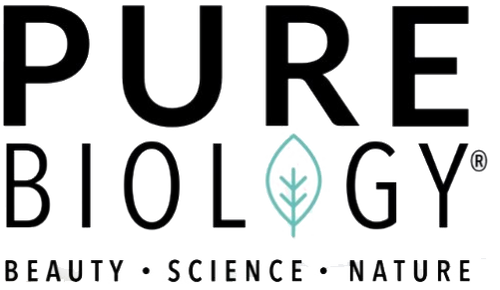Kiss your DRY Skin goodbye because we are here to give you the best tips and tricks to keep your skin hydrated and moisturized all throughout the day!
Click to Jump Topics:
Moisturizing 101
Moisturizing can be quite a chore – but it does have its benefits especially for people prone to dry flaky skin.
Some may think that taking good care of your skin is for vanity and aesthetic purposes only. However, your skin is the largest organ for a reason – it is your first barrier against allergens, bacteria and infections.
Read further to understand the importance of moisturizing...plus tips to prevent dry skin, eczema, and foods to eat to keep your skin youthful and radiant!
Who Should Moisturize
It is never too early to take care of your skin.
You might be wondering, “Why would you treat wrinkles, dry skin, and age spots if it’s not there yet?”
The key to younger supple skin is prevention. As we grow older, our skin is more prone to sun damage, fine lines, and rough skin. Addressing the problem before they show up will greatly benefit your skin from premature aging.
People with dry skin should have moisturizers as their best friend. It will help you replenish moisture to dry and rough skin leaving you with a softer and smoother complexion. Contrary to popular belief, people with oily skin need moisturization too. Oily skin does not mean that it cannot be dehydrated. Over production of oil to make up for dehydrated skin may lead to blemishes and breakouts.
When and How to Apply Moisturizer
The best time to moisturize is after a bath, exfoliation, or shaving to lock in and restore moisture. Lightly tap and apply cream or lotion on to your face in an upward motion. Don’t forget to apply a good amount on your neck and chest too.
You may want to use a different kind of moisturizer for your body but never forget to use a body lotion for your leg and arms, especially after scrubbing.
Finding a Great Moisturizer
Always look at the ingredients to find the best moisturizer. Finding the right one is a trial and error and often depends on your skin type and the weather. Here’s a quick guide to help you find the right one:
For Dry Skin: Look for one with thick consistency. Thicker formula locks in moisture and will keep the skin hydrated.
For Oily Skin: Thin formula or a lightweight moisturizer is best for oily skin to prevent clogging of pores and acne breakout.
For Sensitive Skin: When you have skin conditions like eczema and psoriasis, stay away from products with allergens to avoid making it more irritated. Look for soothing ingredients like aloe vera, chamomile, and oatmeal in the ingredients deck.
Stay out from moisturizers that contain harsh ingredients and the following chemicals:
- Sulfates
- Paraben
- Talc
- Formaldehyde
- Alcohol
- Phthalates
Tips For Dry Skin
Tip # 1: Use Warm Water
Do your skin a favor and get out of that scorching hot shower! I know how relaxing it feels to shower with hot water after a long day, especially during cold winter weather. But did you know that hot showers are not recommended for people with dry skin?
Taking a long hot shower can dry out your skin because the hotter the water, the more oil and moisture is being eliminated from your skin, thus, leaving you with drier and often flaky skin.
In some cases, extremely dry skin may lead to inflammation, eczema, and other skin conditions [*] . Go for a short lukewarm water bath instead and apply a moisturizer after showering.
Tip # 2: Oatmeal Bath & Moisturizer
Taking an oatmeal bath or applying a moisturizer containing colloidal oatmeal is a great way to keep your skin hydrated. Colloidal oatmeal helps soothe dry, flaky, itchy, and inflamed skin [*] . People with a skin condition like Eczema, Psoriasis, or Rosacea can greatly benefit from incorporating this ingredient in their skincare routine.
Note: If you have Eczema, look for a cream with colloidal oatmeal to help soothe itchiness and dryness.
Tip # 3: Exfoliate
Exfoliating removes dead skin cells and helps encourage new cell turnover. Start by exfoliating 1-2 times a week to remove blackheads and dead skin cells. Though exfoliating is a great way to cleanse the pores and remove dirt buildup, it is not for everybody.
Disclaimer: If you have extremely dry skin or a skin condition like eczema (atopic dermatitis), please consult your doctor or dermatologist for a proper treatment plan and exfoliation guide.
What To Eat If You Have Dry Skin
Diet and getting proper nutrients are just as important as moisturizing to achieve optimal skin health and keep it hydrated. Here are some foods you can eat that could help restore skin moisture and combat dry skin:
- Avocado [*]
- Salmon
- Tuna
- Nuts & seeds (flaxseed, almond, pumpkin seeds, walnuts)
- Sweet potatoes
- Broccoli
Remember, these are only a guide, and you should always consult your dermatologist and dietician for the best recommended personalized treatment plan.
Sources:
Colloidal oatmeal: history, chemistry and clinical properties:
https://pubmed.ncbi.nlm.nih.gov/17373175/
Hot showers can damage skin during winter
https://www.bcm.edu/news/hot-showers-can-damage-skin-winter
Polyhydroxylated fatty alcohols derived from avocado suppress inflammatory response and provide non-sunscreen protection against UV-induced damage in skin cells
